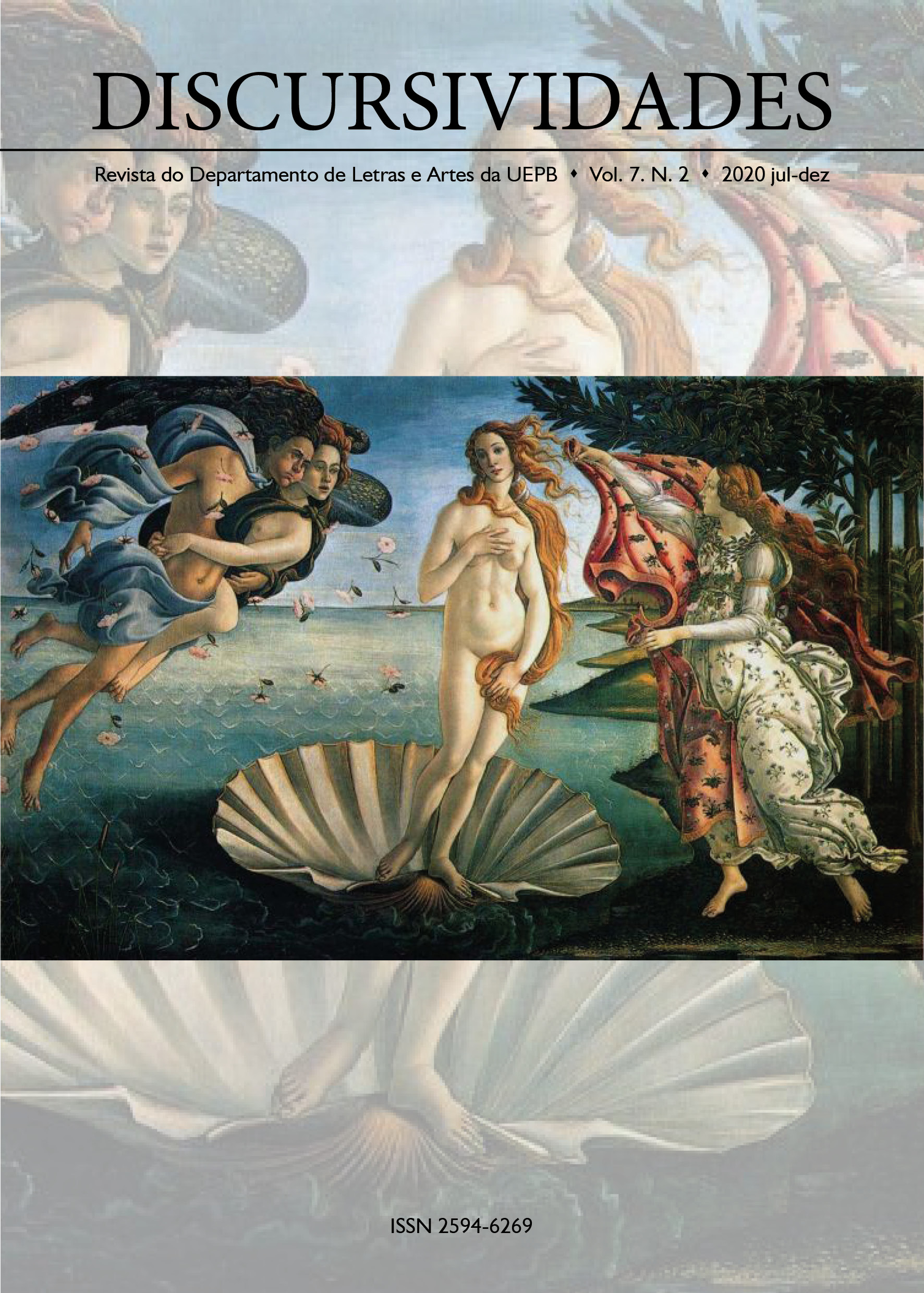Comics Fanzines: language and contributions to education
DOI:
https://doi.org/10.29327/256399.7.2-7Keywords:
Fanzine, Education, LanguageAbstract
As paratopic publications, fanzines enable the creative flow beyond conventional and market boundaries, stimulating freedom of expression and the emergence of new textual and graphic languages. Based on studies by Edgard Guimarães, Fernanda Meireles, Roberto Causo, Gazy Andraus, Elydio dos Santos Neto, among other producers and researchers, we study in the article the evolution of comic book fanzines in the country and its use as a pedagogical tool, a function that has acquired more and more importance in this field of production.
References
BARON-CARVAIS, Annie. La bande dessinée. Que sais-je? nº 2212. 3e édition refondue. Paris: Presses Universitaires de France, avril 1991.
BIVAR, Antonio. O que é punk. São Paulo: Brasiliense, 1982.
CARDOSO, Athos Eichler. As Aventuras de Nhô-Quim & Zé Caipora: os primeiros quadrinhos brasileiros, 1969-1883. Brasília: Senado Federal, Conselho Editorial, 2002.
CAUSO, Roberto. Email ao autor, , em 17 e 26/05/2010.
GLÉNAT-GUTTIN, J. In Grilo, n° 24. São Paulo: 21 de março de 1972.
GUIMARÃES, Edgard. Fanzine. Série Quiosque, 2. João Pessoa: Marca de Fantasia, 2005.
HUNTER, Pedro. HQs de luto por Julius Schwartz. In HQ Clipping, nº 1. Ipatinga, MG: março de 2004, p. 26. Republicado no sítio Omelete , acessado em 16 fev. 2004.
HYJU. Email ao autor, , em 14/05/2010.
Kaboom! nº 1. São Paulo: 2005.
LIMA, José Ronaldo. In Uai, n° 1. Belo Horizonte: s/d.
MAGALHÃES, Henrique. A incrível história dos quadrinhos: 20 anos de HQ da Paraíba. João Pessoa: Sancho Pança, 1983.
MAGALHÃES, Henrique. O que é fanzine. Coleção Primeiros Passos, 283. São Paulo: Brasiliense, 1993.
MAGALHÃES, Henrique. O rebuliço apaixonante dos fanzines. João Pessoa: Marca de Fantasia/Editora Universitária da UFPB, 2003.
MAGALHÃES. Henrique. A nova onda dos fanzines. Série Quiosque, 7. João Pessoa: Marca de Fantasia, 2004.
MEIRELES, Fernanda. Zines em Fortaleza (1996-2009). In MUNIZ, Cellina (org.). Fanzines: autoria, subjetividade e invenção de si. Fortaleza: Edições UFC, 2010.
MOYA, Álvaro de. História da história em quadrinhos. Porto Alegre: L & PM, 1986.
MUNIZ, Cellina (org.). Fanzines: autoria, subjetividade e invenção de si. Fortaleza: Edições UFC, 2010.
NASCIMENTO, Melissa Eloá Silveira. Pedagozinando em sala de aula: artes de dizer e pedagogias de fazer. Dissertação apresentada ao Programa de Pós-Graduação em Educação, UERJ. Orientação: Dr. Paulo Sergio Sgarbi Goulart. Rio de Janeiro: 20 de agosto de 2010.
NASCIMENTO, R. C. Afinal, o que é fanzine? In Singular/Plural, n° 3. São Luís: outubro 1988.
PFISTER, Thierry. A imprensa 'underground', um bom negócio. In Folha de S. Paulo. São Paulo: 20 de maio de 1975.
PolítiQua, n° 6. Carlos Barbosa, RS: fevereiro de 1986.
SANTOS NETO, Elydio dos; ANDRAUS, Gazy. Dos zines aos biograficzines: compartilhar narrativas de vida e formação com imagens, criatividade e autoria. In MUNIZ, Cellina (org.). Fanzines: autoria, subjetividade e invenção de si. Fortaleza: Edições UFC, 2010.
SANTOS NETO, Elydio dos; SILVA, Marta Regina Paulo da (orgs.). Histórias em Quadrinhos e Educação: formação e práticas docente. São Bernardo do Campo, SP: Umesp, 2011.
VIEIRA, Fernando. Rubrica Bedelho. In Barlavento, n° 668. Portimão, Portugal: 19 de outubro de 1989a.
VIEIRA, Fernando. Rubrica Bedelho. In Barlavento, n° 670. Portimão, Portugal: 2 de novembro de 1989b.
Downloads
Published
How to Cite
Issue
Section
Categories
License
Copyright (c) 2020 Henrique Magalhães

This work is licensed under a Creative Commons Attribution 4.0 International License.
Authors who publish in this journal agree to the following terms:
a) Authors retain copyright and grant the journal the right of first publication. The articles are simultaneously licensed under the Creative Commons Attribution 4.0 International Public License (CC BY 4.0) which allows the sharing of the work with acknowledgment of its authorship and initial publication in this journal.
b) Discursividades journal offers immediate free access to its content, following the principle that making scientific knowledge available to the public free of charge provides greater global democratization of knowledge.






